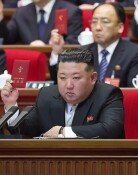Millennials banking on winning big on lottery and cryptocurrency
Millennials banking on winning big on lottery and cryptocurrency
Posted December. 15, 2021 07:41,
Updated December. 15, 2021 07:41
Koreans in their 20s and 30s are mired in economic struggle. More than 1.3 million millennials are estimated to be indebted, while more than half start their career with temporary and fixed-term jobs, contracted for less than a year. Since it is difficult to pay back loans with a monthly salary, young people are buying into lottery tickets and cryptocurrency. People in their 20s spent an average of 295 won a month on lottery tickets in 2019, but this figure has risen by four times to 1,224 won in 2021. The number of cryptocurrency accounts newly opened by people in their 20s and 30s in the first half of 2021 amounts to 3.43 million. Young people who should be working hard and preparing for future are swept up in the risky investment hype, and this is certainly not a good sign.
According to the data released by the Statistics Korea, 47% of those fresh out of college are reported to be contracted to a fixed term employment of less than one year, which is a huge jump from the 20% level compared to six years ago. As good jobs are disappearing, more and more young people are giving up job searching. The number of youth neither in employment nor in education or training, so-called NEETs, surpassed 1.7 million last year. Some of the NEETs are withdrawn from society, either on purpose or unwittingly, being left out of the labor market even before they take the first step into the society.
Jobs are in short supply, incomes are insufficient, yet debts are ever increasing. The total debt owed by heavily indebted 20s and 30s increased to 150 trillion won as of the end of June 2021, marking more than a 20% increase compared to the end of 2019, as a result of soaring housing prices, living expenses, and interest payments. A survey data by the Korea Economic Research Institute showed 75% of young people anticipated that their wages would not outpace inflation. Stuck in debts, young people are more easily tempted to invest with borrowed money. Losing money on investments, they repeatedly take out a loan and are trapped in a vicious debt cycle.
The government has allocated 30 trillion won every year for creating jobs, yet the result is pathetic. One in four remains unemployed, but some industries such as shipping are struggling with labor shortage to the point of facing factory shutdowns. Labor market rigidities have to be reduced, and vocational education and employment training must be adjusted to specifically address the misalignment between demand and supply in the labor market. Aggressive policies need to be implemented to support young people who have lowered their expectations and got a job.
However hard they try to build skills and get into elite universities, young Koreans cannot find a job, and however many hours they work, it is hard for them to earn as much as their parents did at the same age. There is no future for Korea if young people are tempted by making money off speculation at the expense of giving up on dating, marriage, and childbearing. It is the state’s duty to provide career opportunities. The government should revitalize the private sector instead of solely depending on fiscal policies. It should urgently put forward youth policies aligned with industry changes in the post-pandemic era.







